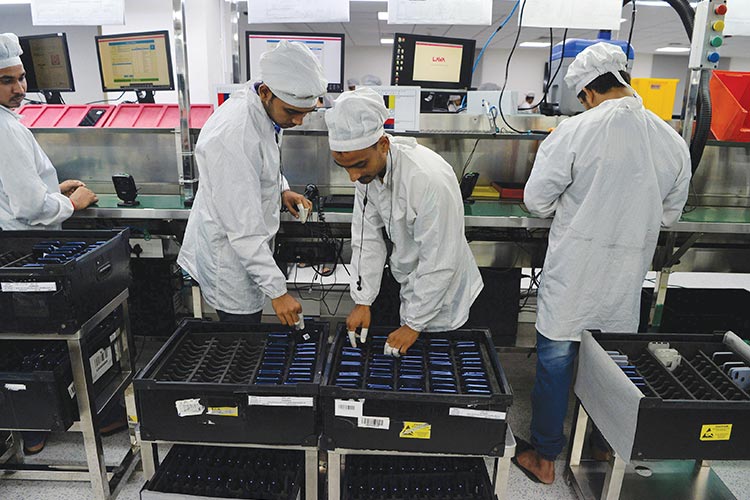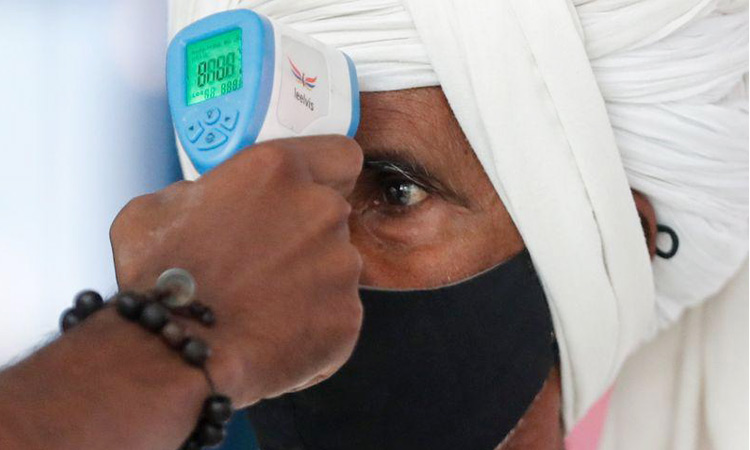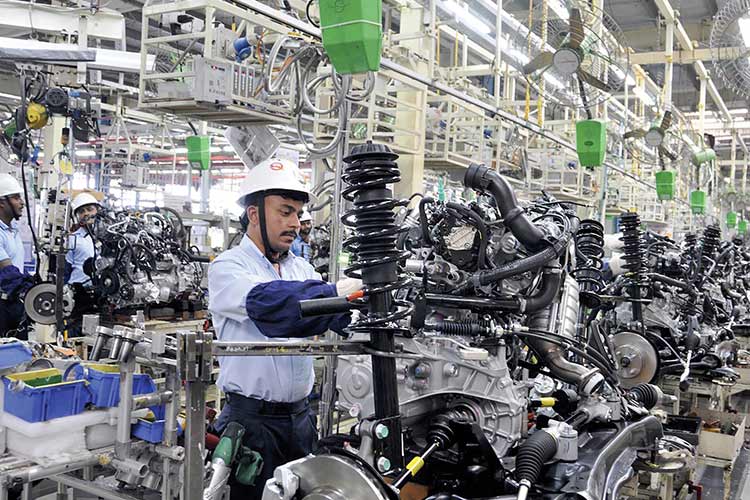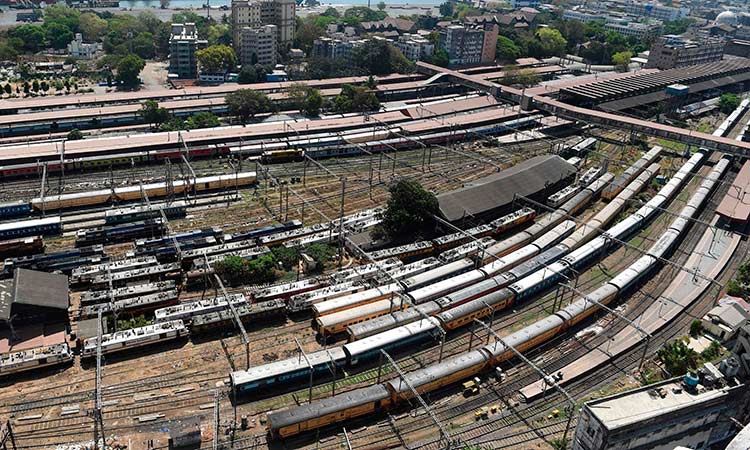Indian companies try to keep corona-positive cases at bay

Employees at a mobile phone factory in Noida, India. File / AFP
In India, companies have taken safety measures but they need to be extra cautious as migrant workforce and contract labourers have slowly started coming back, and stringent measures have to be observed to keep the assembly lines and floor operations sanitized and clean.
In the US, there have been several corona-positive cases at Amazon warehouses, including four deaths owing to the deadly respiratory disease.
Alarmed at this, Amazon has rolled out more changes at its facilities including enforcing temperature checks and procedures to mandate social distancing.
Samsung, which opened its Noida 81 factory last week with limited operations, says employee safety and well-being remain its absolute priority and it has ensured that “all hygiene and social distancing measures are maintained at the premises, as per government guidelines”.
In line with the directive issued by the authorities, OPPO has started operations with 30 per cent of its capacity and as the business gets back to usual in due course of time, the production will be enhanced to full capacity.
“Keeping the safety of its employees and consumers at the forefront, a host of stringent measures have been put in place to practice hygiene and social distancing, both at its manufacturing facility and retail outlets,” the company said in a statement.
Automobile factories and their suppliers have started some operations.
Maruti Suzuki, Hero MotoCorp, Mercedes Benz India, TVS Motor and Isuzu Motors have got the clearance from the state governments to resume limited operations.
In a regulatory filing last week, Maruti Suzuki India said that all operations at its Manesar plant would be carried out in accordance with the government regulations from May 12.
“All activities would be carried out strictly in accordance with the government regulations and guidelines and observing the company’s own concern for the highest standards of safety,” says the auto-maker.
Maruti Suzuki network comprises of 3,086 showrooms across 1,964 towns and cities in the country.
“All of them will abide to the new safety protocols. The opening of showrooms will depend on permission from local authorities,” the company adds.
Two and three-wheeler major TVS Motor Company has commenced operations in India across all factories in Hosur (Tamil Nadu), Mysuru (Karnataka) and Nalagarh (Himachal Pradesh).
“A comprehensive preparedness manual has been designed for employees to ensure complete adherence to necessary safety guidelines to help minimise the spread of the virus,” according to the company.
“At all its manufacturing facilities, the company has undertaken exhaustive measures to ensure safe workplace for employees with appropriate social distancing and highest standards of hygiene,” it states.
Once the manufacturing resumes across the country, it will be challenging for the consumer electronics and auto companies to steer clear of any corona-positive case, and gradually strengthen their capacities.
Meanwhile, As the restrictions are being gradually eased in some zones to bring the economy back on track, the Centre has issued fresh “guidelines for restarting manufacturing industries after lockdown”, advising them not to try to achieve high production targets.
In order to minimise the risk and to encourage a successful restart of industrial units, the guidelines advised the industries to consider the first week as the trial or test run period while starting the units and ensure all safety protocols.
The guidelines were issued on Saturday to all Chief Secretaries and administrators of Union Territories (UTs) as the 14-day lockdown 3.0 is on and will end on May 17.
To minimise the risk, the Ministry has advised that employees who work on specific equipment are sensitised and made aware of the need to identify abnormalities like strange sounds or smell, exposed wires, vibrations, leaks, smoke, abnormal wobbling, irregular grinding, or other potentially hazardous signs which indicate the need for an immediate maintenance or if required shutdown.
“Especially during the COVID-19 times, ensure all lockout and tagout procedures are in place on a daily basis (not applicable for units running 24 hours),” the generic guidelines mentioned.
Indo-Asian News Service







